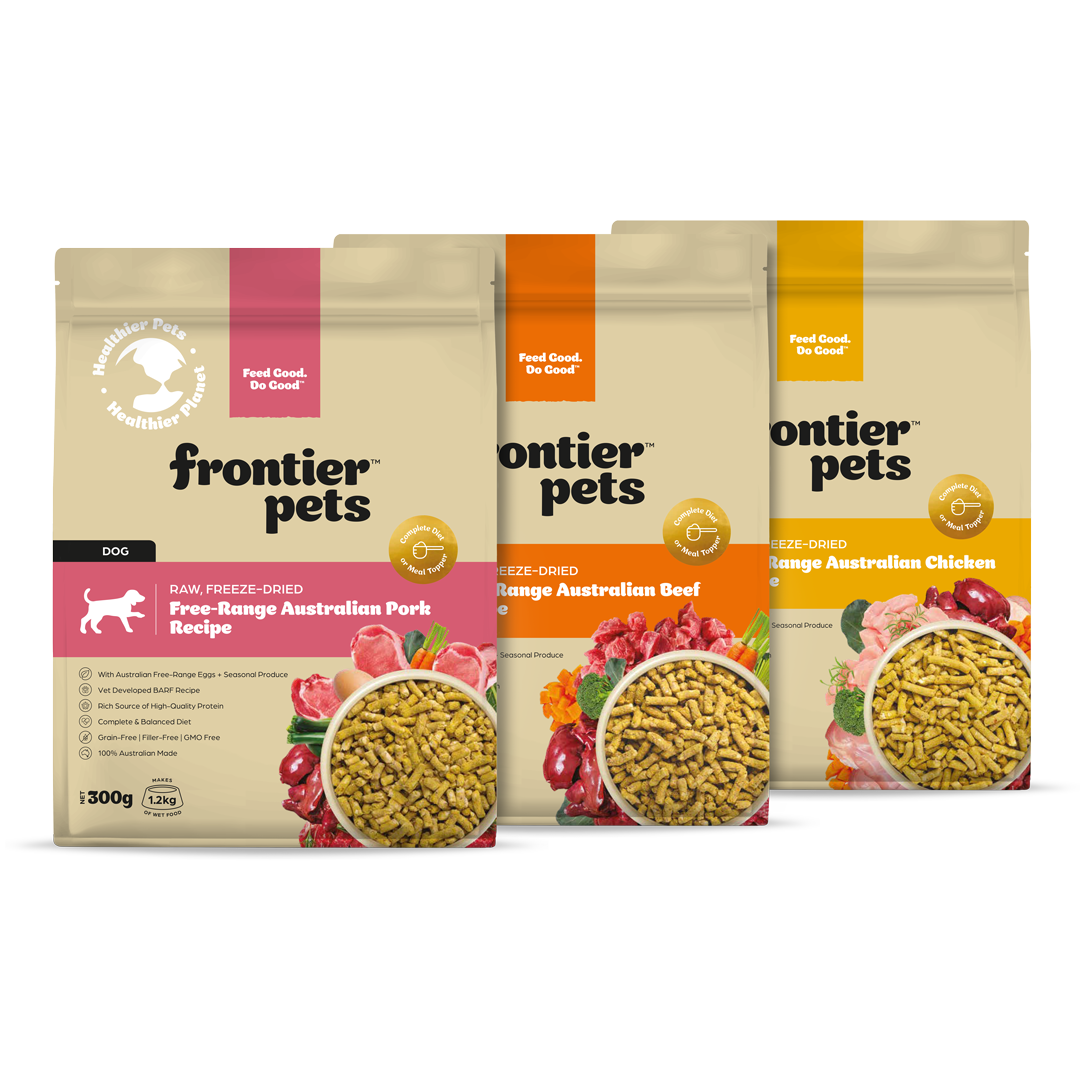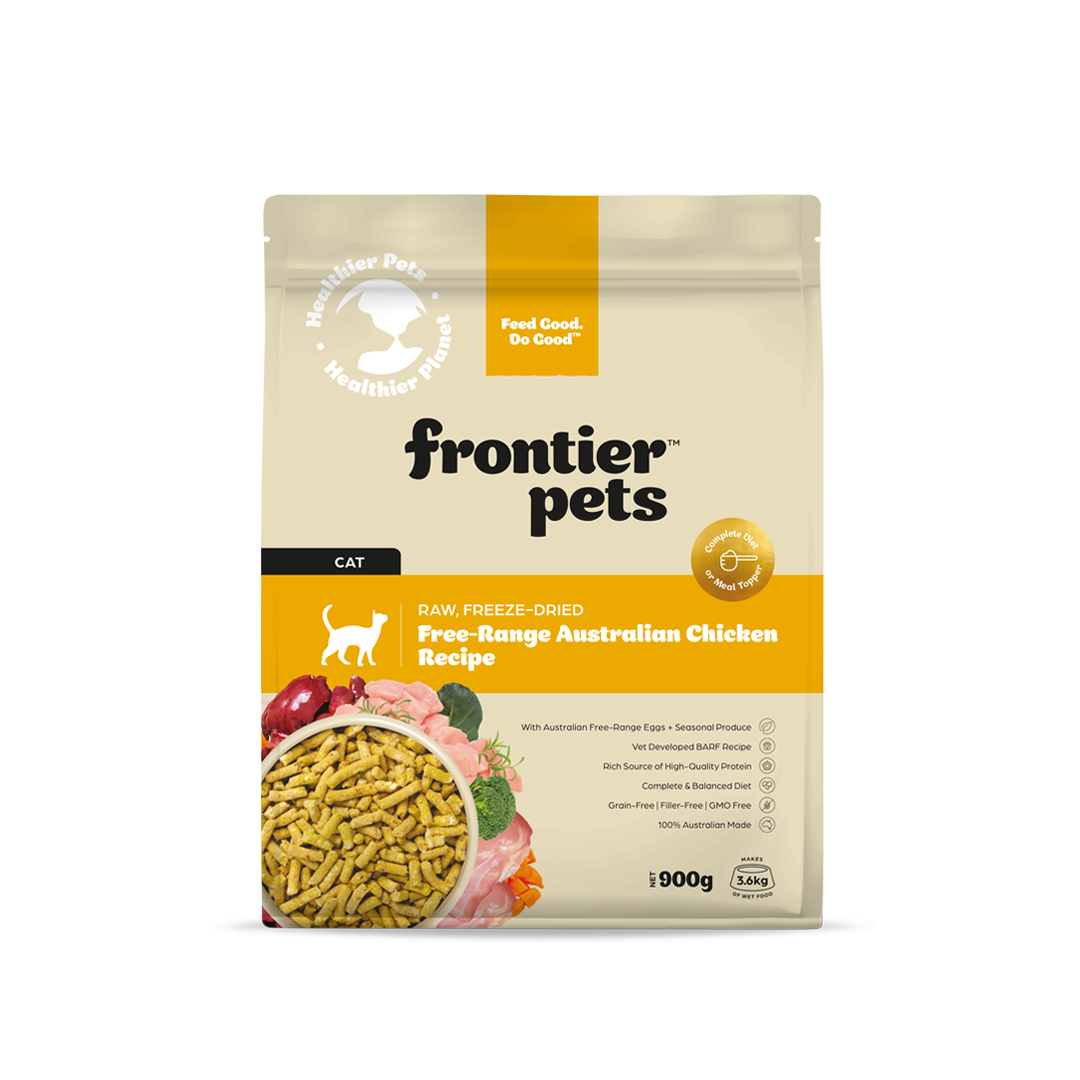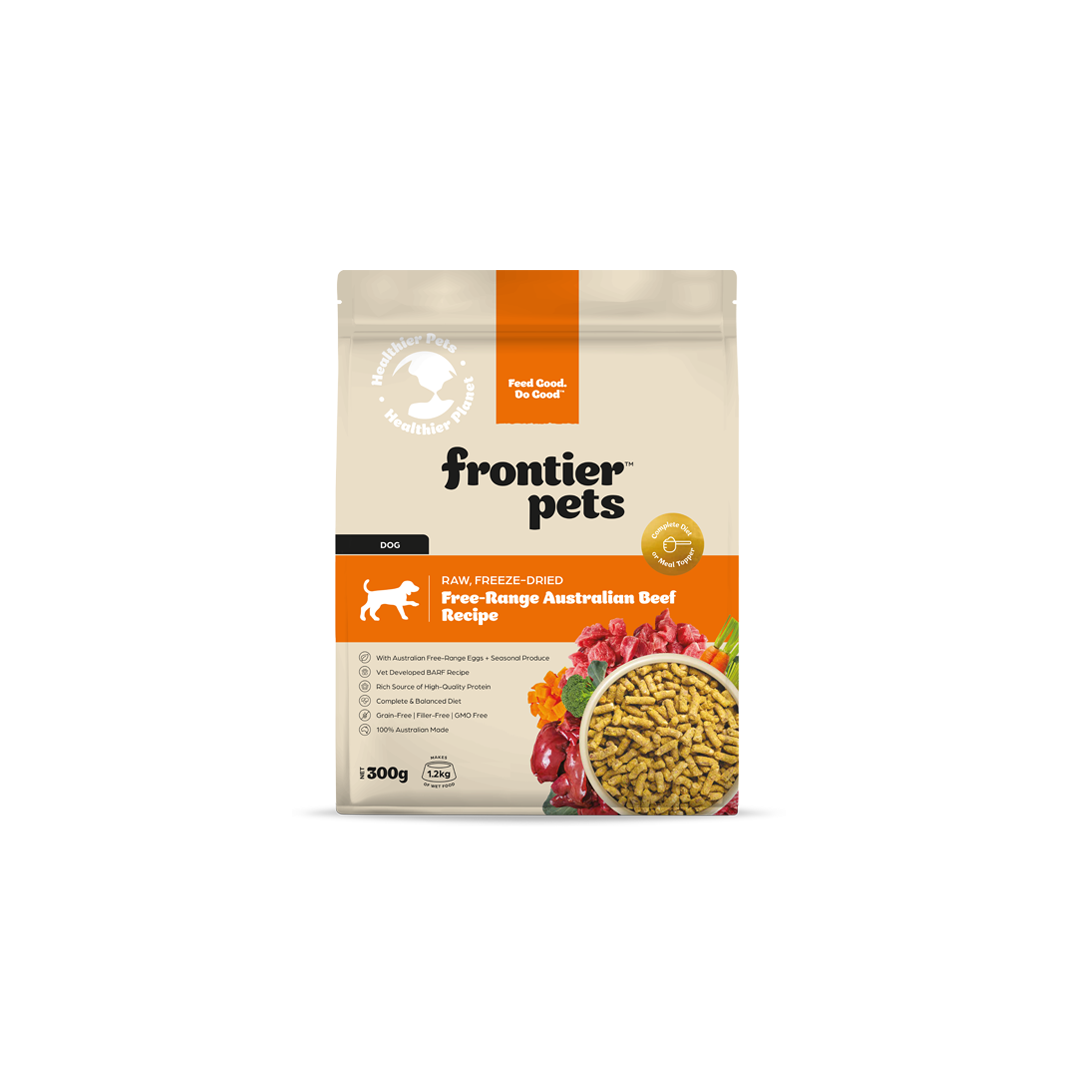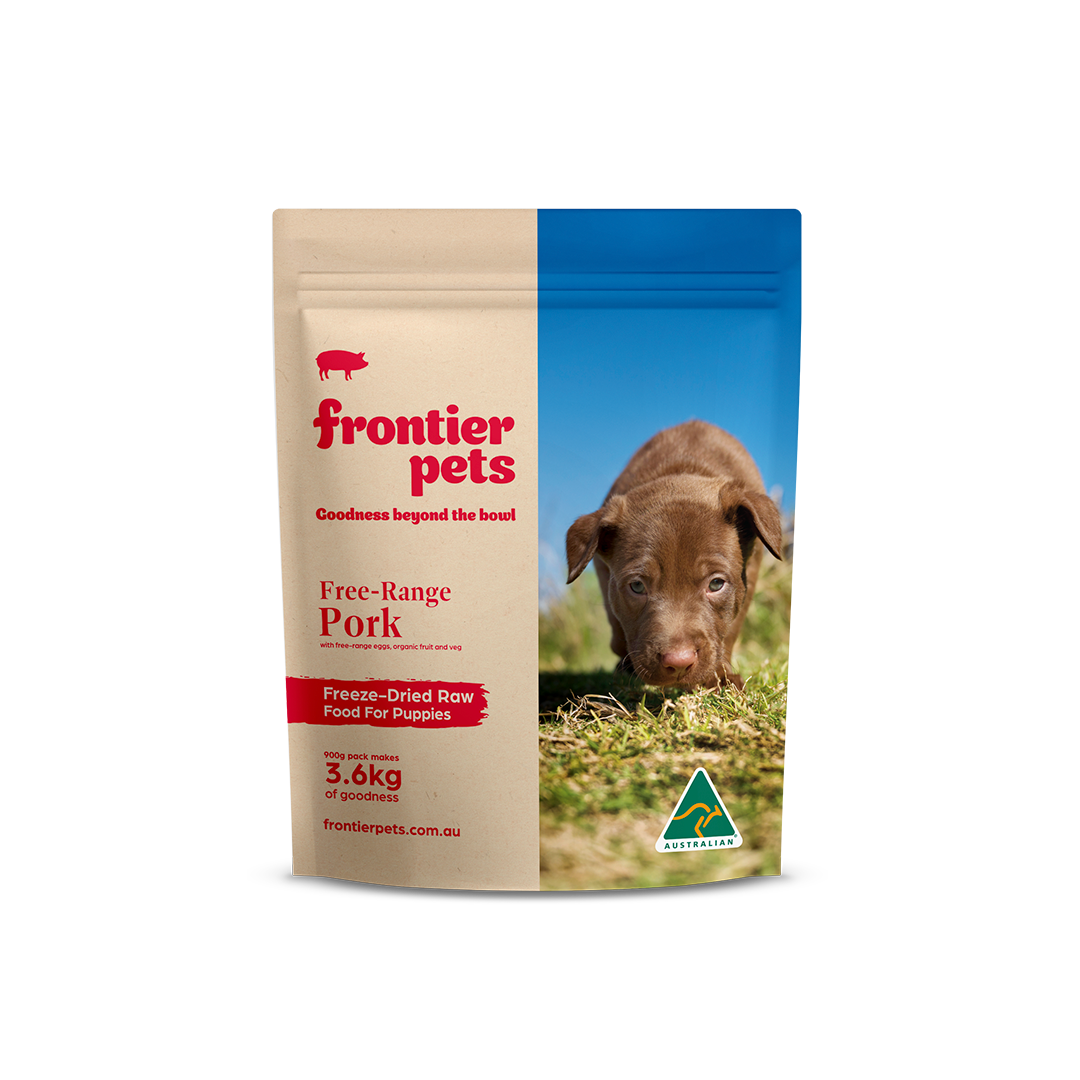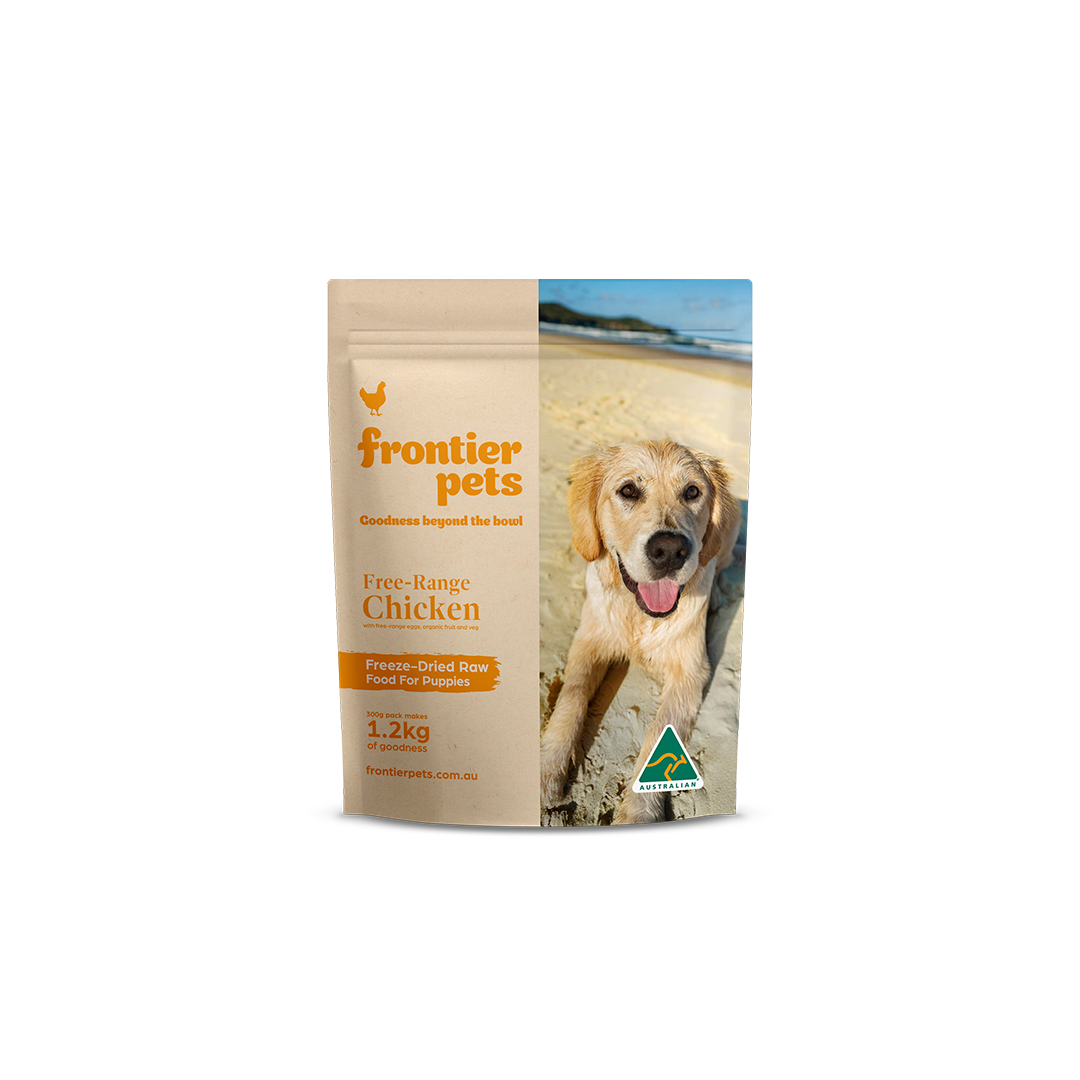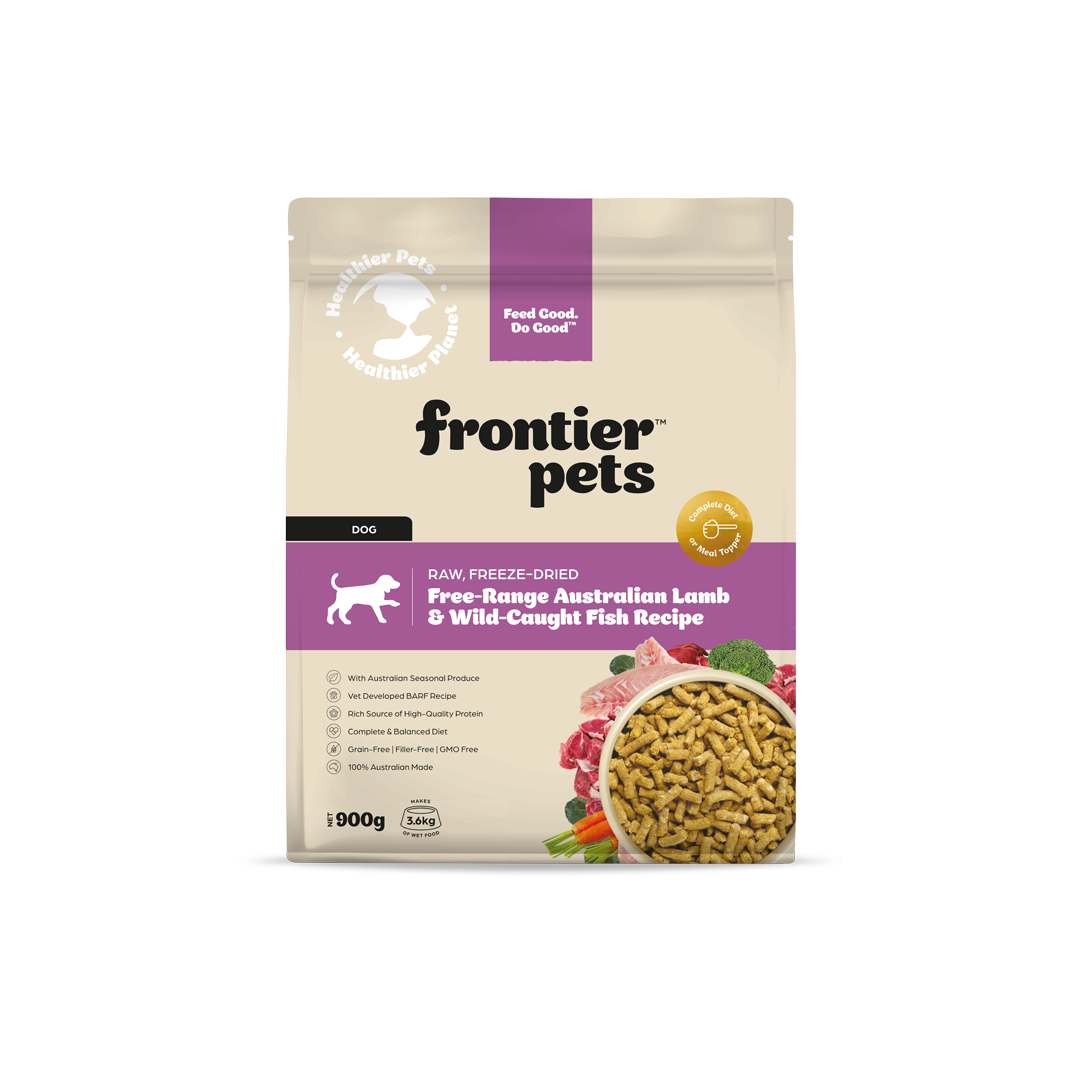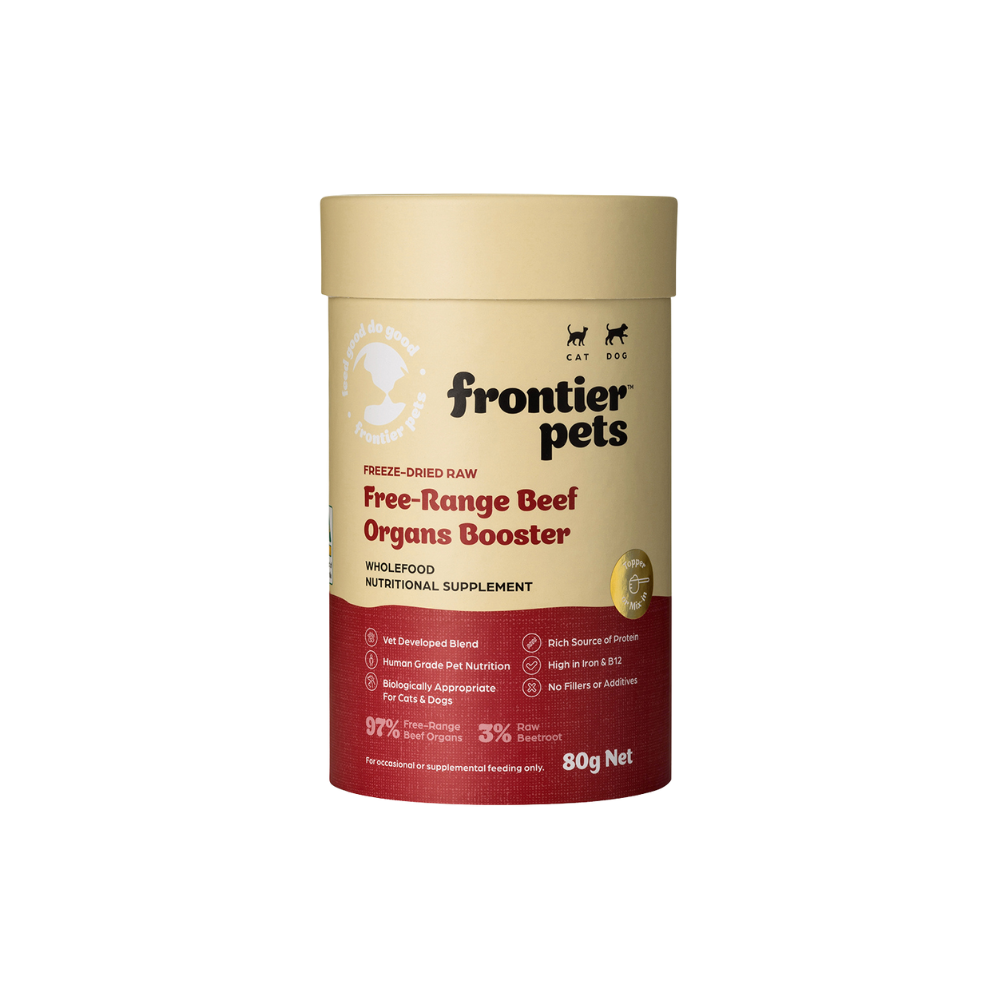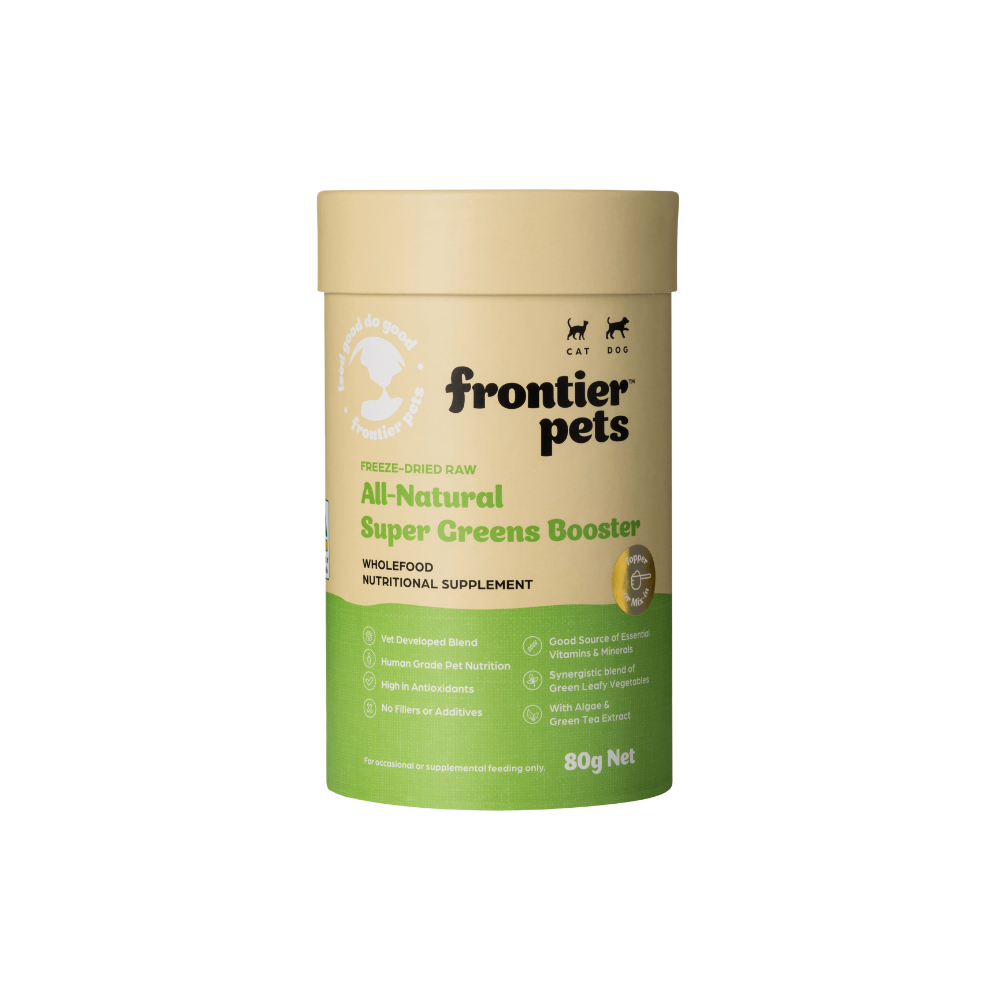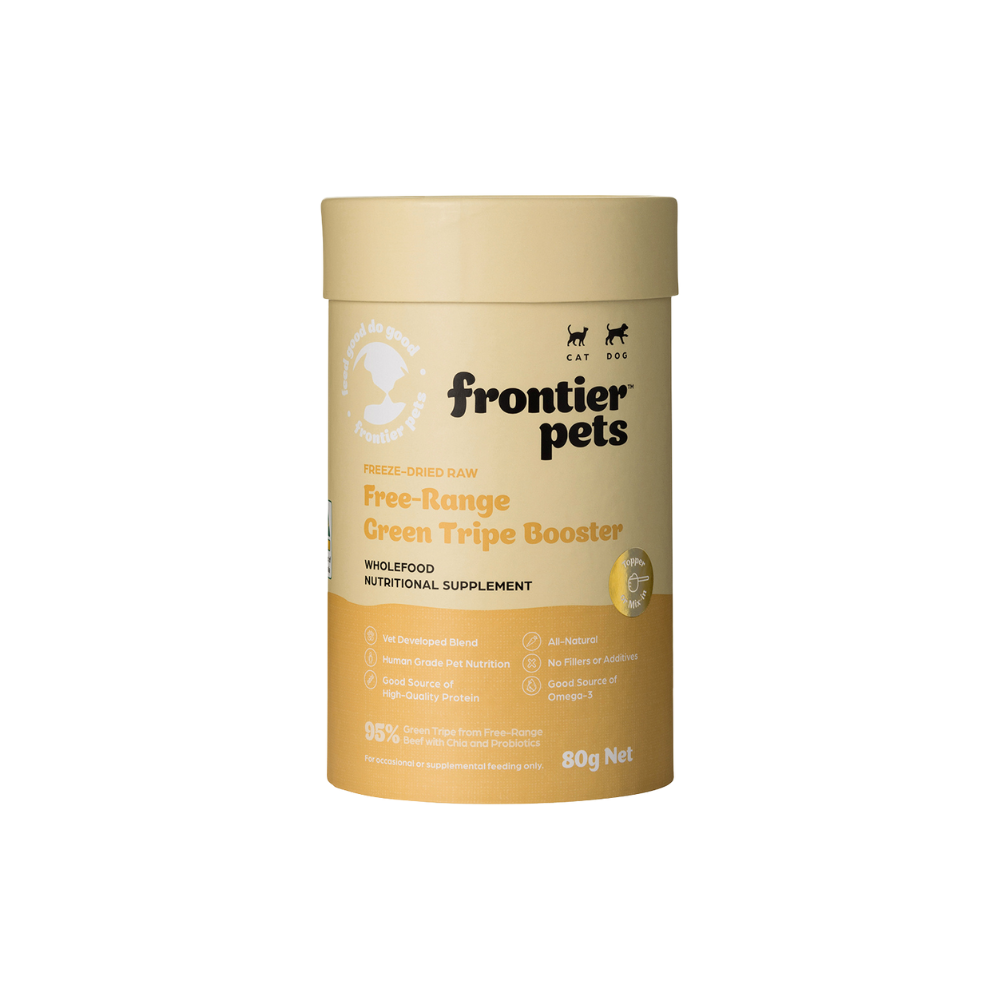Raw chicken and APN in dogs: What are the risks?
Key Points
- Risk: Raw chicken linked to rare nerve condition, APN.
- Cause: Likely triggered by campylobacter bacteria.
- Study: Melbourne Uni found APN cases had this bacteria, especially with raw chicken diets.
- Frontier Pets: Testing our freeze-dried chicken for safety.
- Advice: APN is very rare—keep feeding Frontier Pets for balanced nutrition.
Raw chicken and APN in dogs: What are the risks?
We have received many enquiries from our customers recently following up some research from Melbourne University regarding potential risks of feeding raw chicken to dogs.
Feeding raw chicken has been linked as a risk factor for the development of a very rare neurological condition in dogs called APN (acute polyradiculoneuritis). This is a very rare condition where the nerves of dogs are affected, giving them a tick paralysis type of condition. Whilst most dogs recover after stint in hospital, a small percentage die.
The cause of the condition is immune mediated, meaning caused by an overreaction of the immune system whereby the dogs own immune system attacks the dogs' own nerves. The trigger(s) of the condition are unknown. A similar condition in humans has been linked to, among other things, the bacteria campylobacter, which is commonly found in raw chicken.
The recent study conducted by University of Melbourne researchers looked to see if there was an association between APN and campylobacter in dogs and found that there was. A high percentage of the dogs presenting with the paralysis were found to have the bacteria campylobacter in their faeces. The researchers also found that the dogs were more likely to have campylobacter in their faeces if they had been fed raw chicken. It is not yet known how the bacteria cause the effect or what other factors are involved. Not all exposed dogs are affected.
At Frontier Pets we take our commitment to your dog’s health and wellbeing very seriously.
Based on this new research we are currently conducting tests to verify our raw, freeze-dried chicken is free of this particular bacteria. We believe it is and will keep you posted.
In the meantime, I encourage you not to be frightened by what is a very rare disease and to continue to feed your dog Frontier Food for superior nutrition and all the associated health benefits.
Wonderfully healthy food and a healthy, low chemical lifestyle will reduce the risk of immune system over reaction, which is at the heart of this disease.
Dr Kathy Cornack, Consultant vet for Frontier Pets.
This general health advice comes from holistic veterinarian Dr. Kathy Cornack. For any specific health concerns about your pet, please consult your veterinarian. Individual animal needs may vary. This is general advice only.
References:
- https://www.yourvetonline.com/feeding-raw-chicken-linked-paralysis-dogs/
- https://www.dvm360.com/view/raw-chicken-associated-with-paralysis-in-dogs
- https://www.unimelb.edu.au/newsroom/news/2018/february/dog-paralysis-condition-linked-to-eating-chicken-necks
Frequently Asked Questions (FAQs)
More Blog posts

Best Low Maintenance Dog Breeds in Australia
Choosing your new fluffy companion is never easy. There is a wide range of considerations that go into finding the perfect pup for you! From your lifestyle to your living arrangements, it’s importa...
Read more
Steps With Pets Charity Challenge, August-September 2025
Steps with Pets – Tottenham Hotspur’s global charity dog-walking challenge, supported by Frontier Pets Calling all dog-loving Spurs fans around the world! This is your chance to combine your pass...
Read more
